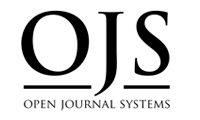Lexicon and double discourse of Chilean political conservatism in the first half of the 20th century
Article Sidebar
Keywords:
Main Article Content
Abstract
The reasons for political conservatism are associated with mobilizing signifiers and rhetorical strategies for handling conceptual ambiguity. This article aims to explore the lexicon and double discourse modalities of the Chilean Conservative Party of the first half of the 20th century. The study is based on a discourse analysis of ideographs (McGee, 1980) and the fallacies of terminological ambiguity (Bentham, 1986) displayed in political proclamations of the Conservative party in 1878, 1918, 1932 and 1953. There is an oscillation between a party political lexicon and a confessional doctrinal lexicon, as well as transformations of the political vocabulary, depending on the associated antagonistic signifier (liberalism, radicalism, socialism, communism). There are also changes in the persuasive use of double discourse through the different political and historical conjunctures.
Article Details
Juan Antonio González de Requena Farré, Universidad Austral de Chile
Profesor asociado del Instituto de Psicología de la Universidad Austral de Chile
This work is licensed under a Creative Commons Attribution 4.0 International License.
Culture, Man and Society (CUHSO) by the Catholic University, Temuco, is distributed under a Creative Commons Licence: Licencia Creative Commons Atribución-NoComercial-CompartirIgual 4.0 Internacional. Based on a work found at http://cuhso.cl.
In all cases, the copyright is conserved by the authors.
The works published in CUHSO can be shared, copied and distributed in any medium or format. CUHSO authorises the adaptation, remixing, transformation and creation from parts of the work. By agreeing to this licence, the previous principles cannot be revoked.
Authorships must be acknowledged, and a link to the license must be provided and it must be acknowledged if any changes have been made. You can do this in any reasonable way, but not in a way that suggests that you have the support of the licensor or in order to receive compensation for its use. The works published in CUHSO cannot be used for any commercial purposes. Any work derived from the content published in CUHSO




